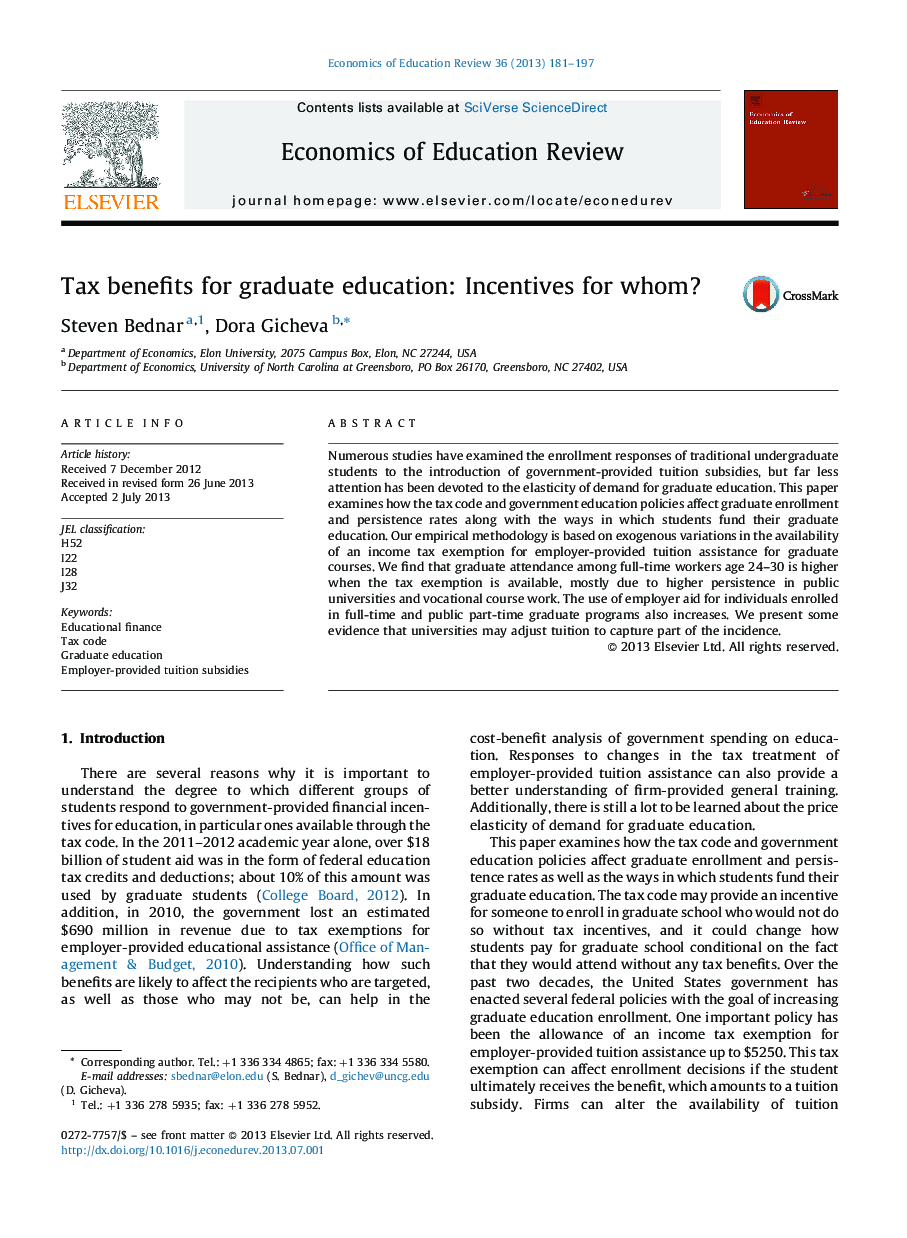| Article ID | Journal | Published Year | Pages | File Type |
|---|---|---|---|---|
| 6840929 | Economics of Education Review | 2013 | 17 Pages |
Abstract
Numerous studies have examined the enrollment responses of traditional undergraduate students to the introduction of government-provided tuition subsidies, but far less attention has been devoted to the elasticity of demand for graduate education. This paper examines how the tax code and government education policies affect graduate enrollment and persistence rates along with the ways in which students fund their graduate education. Our empirical methodology is based on exogenous variations in the availability of an income tax exemption for employer-provided tuition assistance for graduate courses. We find that graduate attendance among full-time workers age 24-30 is higher when the tax exemption is available, mostly due to higher persistence in public universities and vocational course work. The use of employer aid for individuals enrolled in full-time and public part-time graduate programs also increases. We present some evidence that universities may adjust tuition to capture part of the incidence.
Related Topics
Social Sciences and Humanities
Economics, Econometrics and Finance
Economics and Econometrics
Authors
Steven Bednar, Dora Gicheva,
